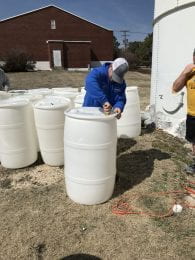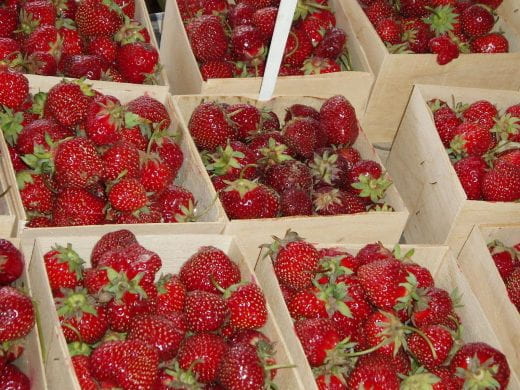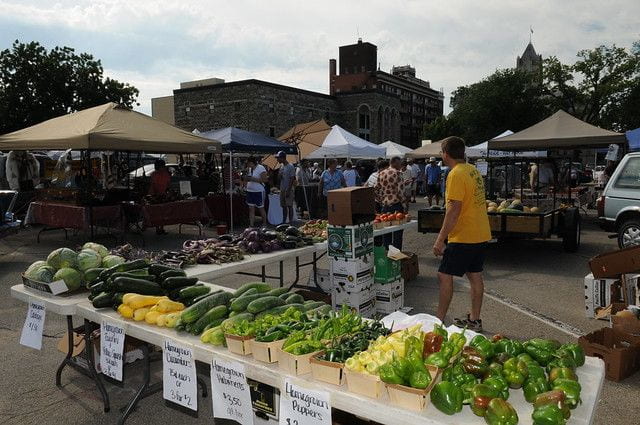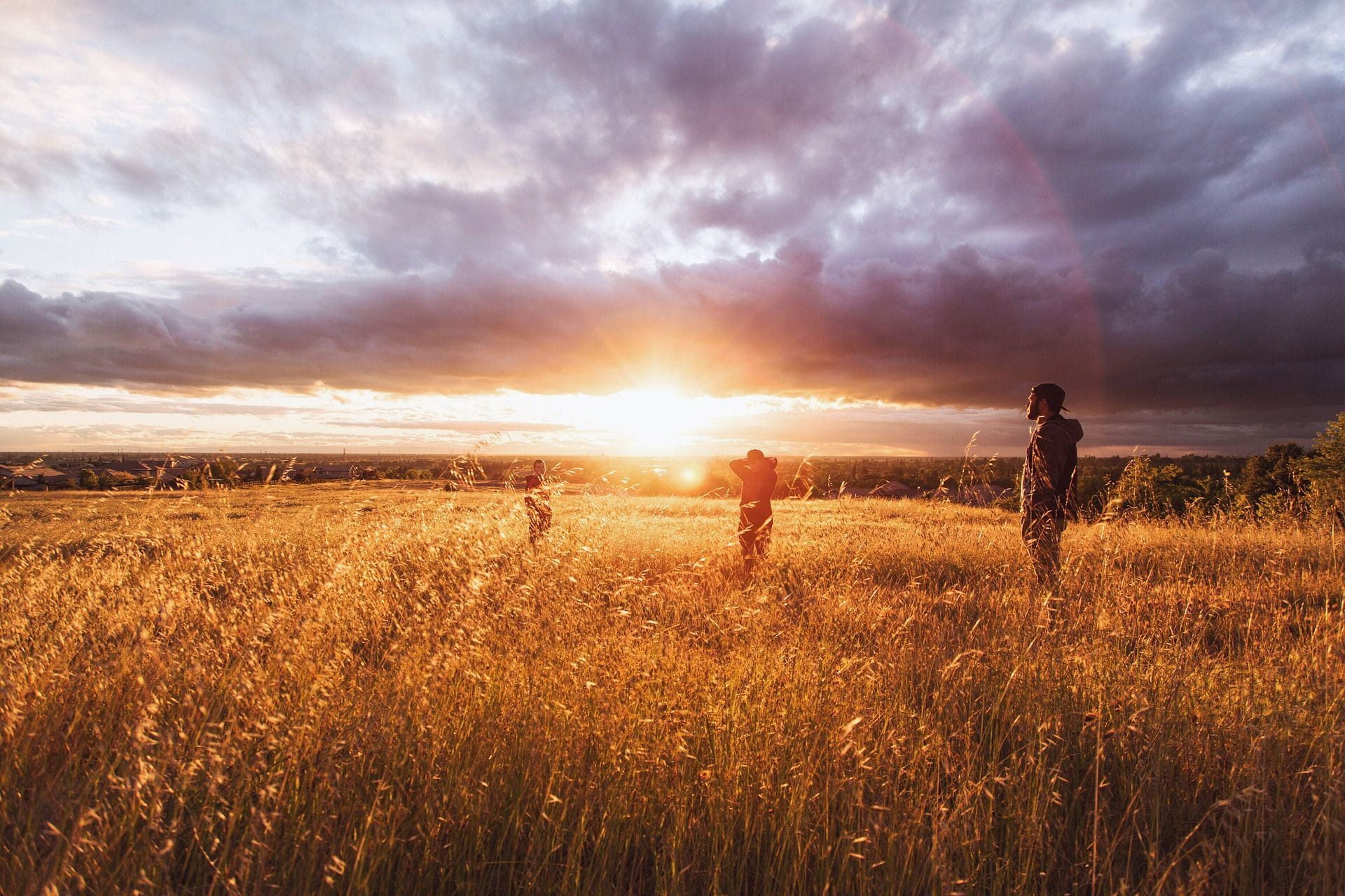Welcome to Better Kansas, a weekly update that touches on a few of the many events, resources and programs available around the state. For more resources and activities, check with the K-State Research and Extension office in your area. In the meantime, check our Better Kansas site for archived entries and to sign up. Share it with friends, family and colleagues! – Mary Lou Peter mlpeter@ksu.edu
Better Living, Better Communities
WHAT A RANGE OF EMOTIONS WE HAVE WHEN FIGURING OUT WHO WILL TAKE CARE OF OUR CHILDREN when we’re heading off to work or school. Maybe you’re considering a child care home where an individual cares  for children in a home setting. How do you find a good one? They’re adorable, but babies and toddlers take time and a lot of attention! How many babies are allowed to be cared for by one individual? How many children can one person care for if all of the children are school aged? There are rules and regulations licensed child care homes must abide by in Kansas. Choosing Care For Your Children: Child Care Homes is one of several K-State Research and Extension resources available that focuses on the ins and outs of choosing the best care for your kiddo.
for children in a home setting. How do you find a good one? They’re adorable, but babies and toddlers take time and a lot of attention! How many babies are allowed to be cared for by one individual? How many children can one person care for if all of the children are school aged? There are rules and regulations licensed child care homes must abide by in Kansas. Choosing Care For Your Children: Child Care Homes is one of several K-State Research and Extension resources available that focuses on the ins and outs of choosing the best care for your kiddo.
REMEMBER THAT PROMISE YOU MADE TO YOURSELF EARLY THIS YEAR? The one about eating healthier? If you’re like me, it’s a good time to revisit that promise. Summer is a great time to try new fruits and vegetables! Go to your local farmer’s market or visit with someone in the produce section at your grocery store about what’s in season. Many even have or can direct you to recipes using those foods. The prices on
foods in season are often lower than at other times of the year, making them healthier for your budget, too. There are even foods that help keep you hydrated during the hot weather …. think watermelon! Check out the recent Sound Living podcast Healthy Summer Eating and get familiar with a list of when fruits and vegetables are typically in season in Kansas.
BY THE WAY, MANY FOODS CAN BE PRESERVED SAFELY NOW so you can enjoy the taste of the season long after the season is past. My mind is drifting to strawberry jam and pickles but there’s so much more you can do. Many K-State Research and Extension offices offer tips and training on safe food preservation including in Wichita on June 28 and in Topeka on July 9. Check with your local office to see if there’s one available near you. Even if there’s not, there’s great information on the Preserve It Fresh, Preserve It Safe web page.
Better Farming, Ranching and Gardening
DON’T MISS ONE OF THE VERY BEST AG BUSINESS CONFERENCES IN THE COUNTRY. The 2019 K-State Risk and Profit Conference is Aug. 22-23 at the K-State Alumni Center. Sara Wyant, president of Agri-Pulse Communications, Inc., leads things off as the keynote speaker at the opening lunch, followed by breakout sessions on tons of topics, industry exhibits, social time, dinner, and “A Conversation with a Kansas Producer.” And that’s just the first day. The second day features the grain and livestock market outlooks and more breakout sessions on even more topics, plus lunch. This is the place to be if you want relevant big-picture – plus regional and statewide – information on managing your farms and ranches.
If we’re lucky, we’ll get to hear the Pride of Wildcat Land Marching Band practicing next door again this year. What can I say? I was a band parent!
LOOKING FOR A BETTER WAY TO KEEP YOUR GARDEN AND LANDSCAPE WATERED? COLLECTING RAINWATER IS FREE! If you don’t already have rain barrels, there’s no time like the present to make a trip to the hardware store to get you started on implementing this efficient way to collect rain water for use in the landscape and to help protect water quality. And we’ve got step-by-step information to show you how in How to Build a Rain Barrel Part 1 and Part 2.
Several extension offices across the state have held workshops on how to make and use them. For example, K-State Research  and Extension offices in Ellis, Russell and Ellsworth counties have teamed with the KSU Big Creek Middle Smoky Hill River Watersheds, the City of Hays & City of Ellis, Ellis County Master Gardeners, County Conservation District Offices in Ellis, Russell, & Ellsworth counties, and the Fort Hays State University Agriculture Department to build and distribute more than 6,500 rain barrels and kits, including to at least 15 states – even Alaska. That’s collaboration with great outcomes.
and Extension offices in Ellis, Russell and Ellsworth counties have teamed with the KSU Big Creek Middle Smoky Hill River Watersheds, the City of Hays & City of Ellis, Ellis County Master Gardeners, County Conservation District Offices in Ellis, Russell, & Ellsworth counties, and the Fort Hays State University Agriculture Department to build and distribute more than 6,500 rain barrels and kits, including to at least 15 states – even Alaska. That’s collaboration with great outcomes.
Check with the extension office in your area for more information.
SUMMER HAS BEGUN IN EARNEST, AND MANY OF US ARE FUSSING OVER OUR FLOWERS AND WONDERING WHEN watermelons will appear under those leaves. Take that green thumb of yours to the next level and become a Master Gardener! If you’re looking for a volunteer opportunity with an educational component, the Extension Master Gardener  program has your name on it. Some county and district K-State Research and Extension offices offer the program, which involves donating time in your community in exchange for horticultural training. It’s a great way to meet others and use your training to work at public gardens, garden shows, staffing horticulture hotlines, giving horticulture-related presentations or other activities. Last year alone, Master Gardeners in Kansas donated more than 103,700 hours for a total value of over $2.3 million.
program has your name on it. Some county and district K-State Research and Extension offices offer the program, which involves donating time in your community in exchange for horticultural training. It’s a great way to meet others and use your training to work at public gardens, garden shows, staffing horticulture hotlines, giving horticulture-related presentations or other activities. Last year alone, Master Gardeners in Kansas donated more than 103,700 hours for a total value of over $2.3 million.
Some extension offices are accepting applications RIGHT NOW. Check to see when and if yours does.








